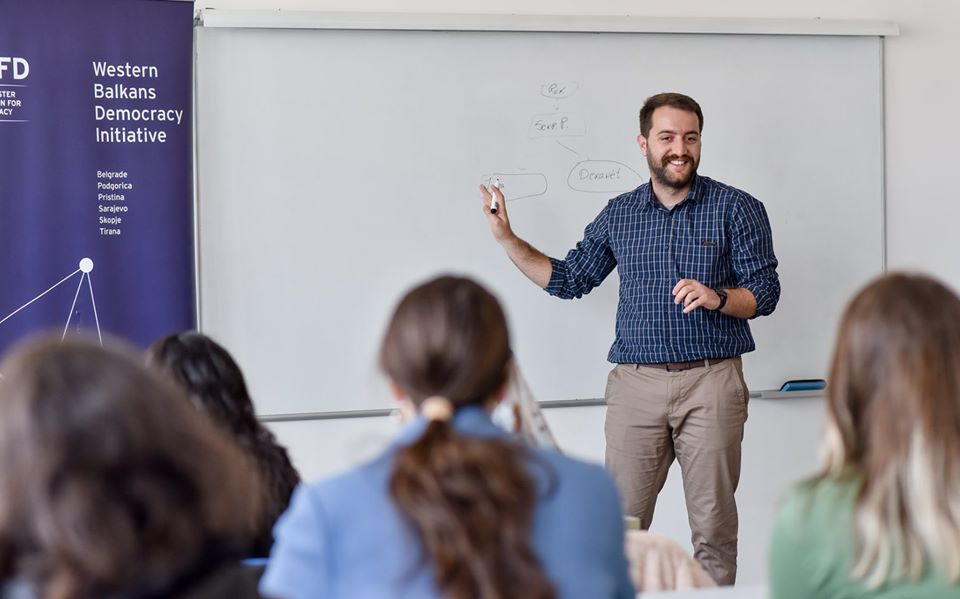Photo credits: Fahri Hiseni
It is difficult to comment on interethnic relations in any society and doing so from a Balkan perspective is no exception. One reason for this is the complex historical context within which the countries of this peninsula exist. In each of the Balkan societies today, there is a great appetite for looking back at the distant past with fondness, to a time of our “great nations”. Of course, each Balkan society also sees their neighbours to be to blame for this ideal not being realized today. This leads us to the not so glorious recent past. Take Macedonia, which 11 years after an unremarkable exit from Yugoslavia, faced shocking events, specifically wars, conflicts and scandals between ethnic groups. People who had been living side by side, in parallel worlds, in this region for generations.
With these differing takes on history, at some point our society will need to face the consequences of its past actions and prejudices.
It’s worth mentioning here, that every Balkan country that took part in the recent wars and conflicts, has avoided fully investing in the one process that should already be well underway. I am talking about the process of transitional justice. There has not yet been a great will to start this process anywhere in the region. In North Macedonia, it has been almost 20 years since the internal conflict between two ethnic communities (Macedonian and Albanian) and to date, there has been no epilogue to this conflict. We have limited knowledge about what really happened. There has been no strategy on how to address or resolve the injustices of this conflict, instead it has been left to the people to freely interpret and draw conclusions.
Throughout this article, I will attempt to objectively present the big picture of the relations between the two most sensitive ethnic groups in North Macedonia.
A 2011
This implies that the education system is segregated and does not encourage enough communication between students and schools to teach an inclusive collective history of Macedonia. Instead, the approach of many primary school history teachers is to focus exclusively on teaching their own ethnic group’s history and skip the other lessons. This is happening in both dominant and minority communities. Having worked with schools across all ethnic communities, many see teaching collective history as unnecessary!
Why would this be? The aforementioned research shows that much of the issue could lie in interethnic prejudice and mistrust:
So, if we take the stated research as a reflection of
Educational institutions are key. They should be encouraging critical thinking in students to challenge and eliminate prejudice and xenophobia among their peers. To reach the point where a generation of students is not divided by ethnicity, but rather, strengthened by it,
In North Macedonia, a positive example of this idea in practice is the partnership between high schools of predominantly different ethnic backgrounds and the creation of
I recognize that tackling
Fahri Hiseni is a law graduate of the State University of Tetovo. He has been a peace activist for human rights and inter ethnic integration among young people for eight years. He is the project assistant of the Project "Inter ethnic Integration of Youth in Education" and contributes to improving inter ethnic cohesion among young people by building and cultivating democratic and civic values and behaviors.




